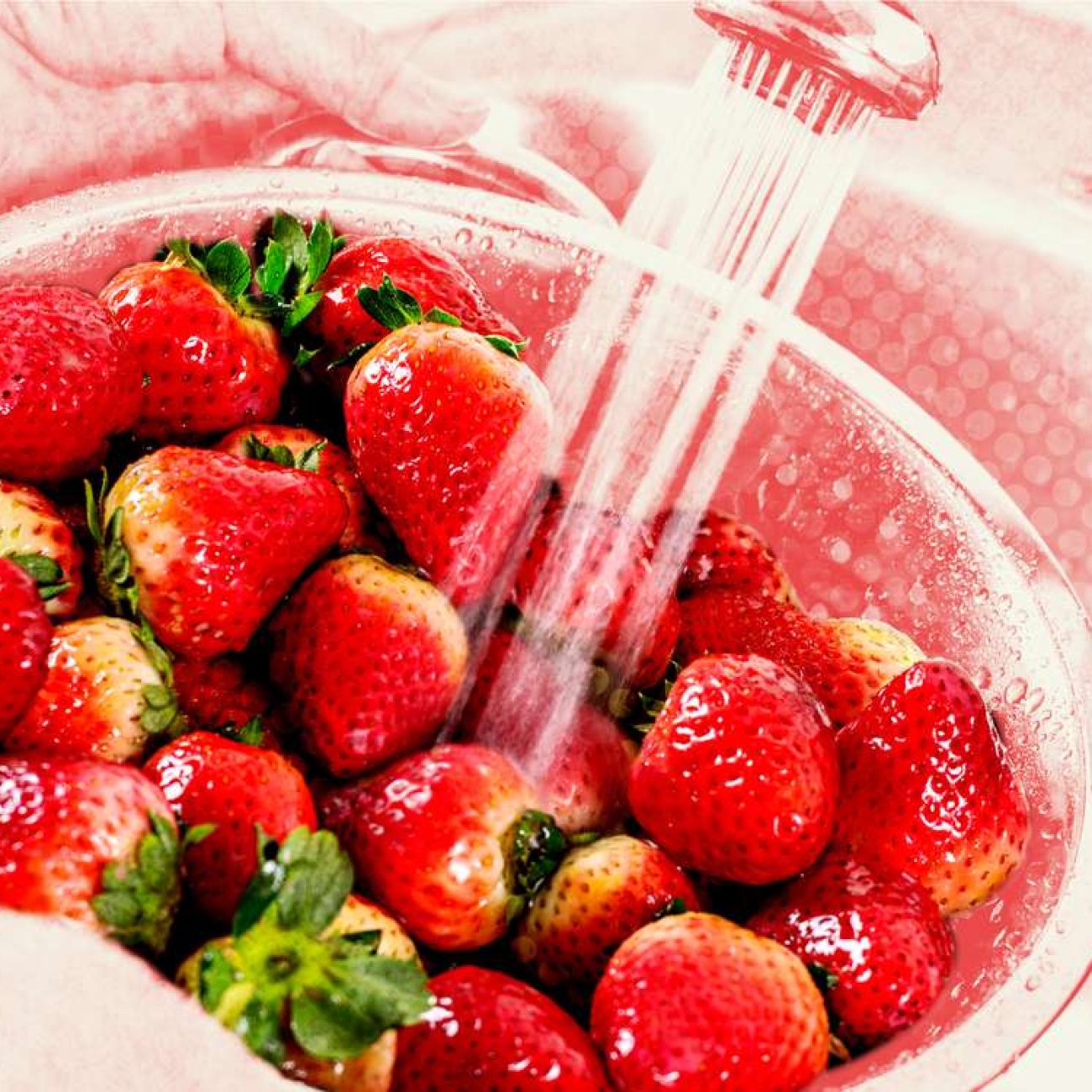Yes, There Are Bugs in Strawberries—Here’s How to Get Rid of Them

https://www.allrecipes.com/thmb/1u0TNaqcKhH9ddGDT-S8WUhlTW0=/1500×0/filters:no_upscale():max_bytes(150000):strip_icc()/ar-washing-strawberries-2×1-3f73bf1efe6840c5add97d8e20217a62.jpg
One of the best things about the weather getting warmer is the selection of fresh fruit that’s back in season. So long “meh” grapes and hello sweet strawberries!
Of course, enjoying all of this bounty comes with making sure that our fruit and vegetables are clean. Videos of people washing their strawberries in salt and seeing tiny bugs come out of them went viral last year, which had us wondering—how exactly do we avoid that? No one wants to imagine that insects are living inside their fruit salad, so how exactly do you remove bugs from your berries?
Yes, There Are Bugs in Your Strawberries
Produce comes from the ground so some amount of debris, dirt, and yes, bugs, is normal. The good news is that none of these critters should be harmful to your health.
“On occasion, folks might buy large flats of strawberries for jam. If fruit flies are an issue, the best approach is to rinse the fruit like usual and skim any larvae off the surface once the fruit comes to a boil,” says plant ecologist and food writer, Heather Ardnt Anderson.
Soaking strawberries in a saltwater solution will indeed cause any hidden pests to emerge. According to Cornell University, placing berries in a solution of 1 tablespoon of salt in 1 cup of water for 15 minutes will extract larvae that’s been nesting in the fruit. Give the berries a good thorough rinse to remove any lingering saltiness and those unwelcome guests.
After stocking up on your berries, you might wonder what’s the best way to keep those juicy beauties from turning moldy and help them last longer. We reached out to the fruit experts at Driscoll for their take.
The Best Way to Wash Strawberries, According to Driscoll
kajakiki/Getty Images
As with all fresh produce, Driscoll recommends rinsing berries thoroughly under cool water and using a clean cloth to scrub the surface, if necessary.
The Food and Drug Administration agrees, advising consumers to only use water and a vegetable brush to remove any dirt or potential unseen pathogens. They don’t recommend special vegetable washes or soaps.
When Anderson washes her berries, she also keeps it simple. “My favorite way to wash them is just soak them in a bowl of cold water and give them a gentle shake to knock any dirt loose. The dirt and other debris sinks to the bottom and then you can scoop the berries out with a slotted spoon and transfer to a clean kitchen towel to let them air dry,” she says. “It’s always best to store fruit unwashed to prevent mold. Just wash before eating.”
How to Store Berries to Keep Them Fresh Longer
Always refrigerate your strawberries immediately and keep them as dry as possible. Additional moisture creates a breeding ground for bacteria to thrive in, so make sure to eliminate it. That may mean using paper towels or clean cloth to absorb any additional condensation or rinsing the berries only when you’re ready to enjoy them.
Driscoll also recommends berries reach room temperature before serving to enhance their natural flavors.

